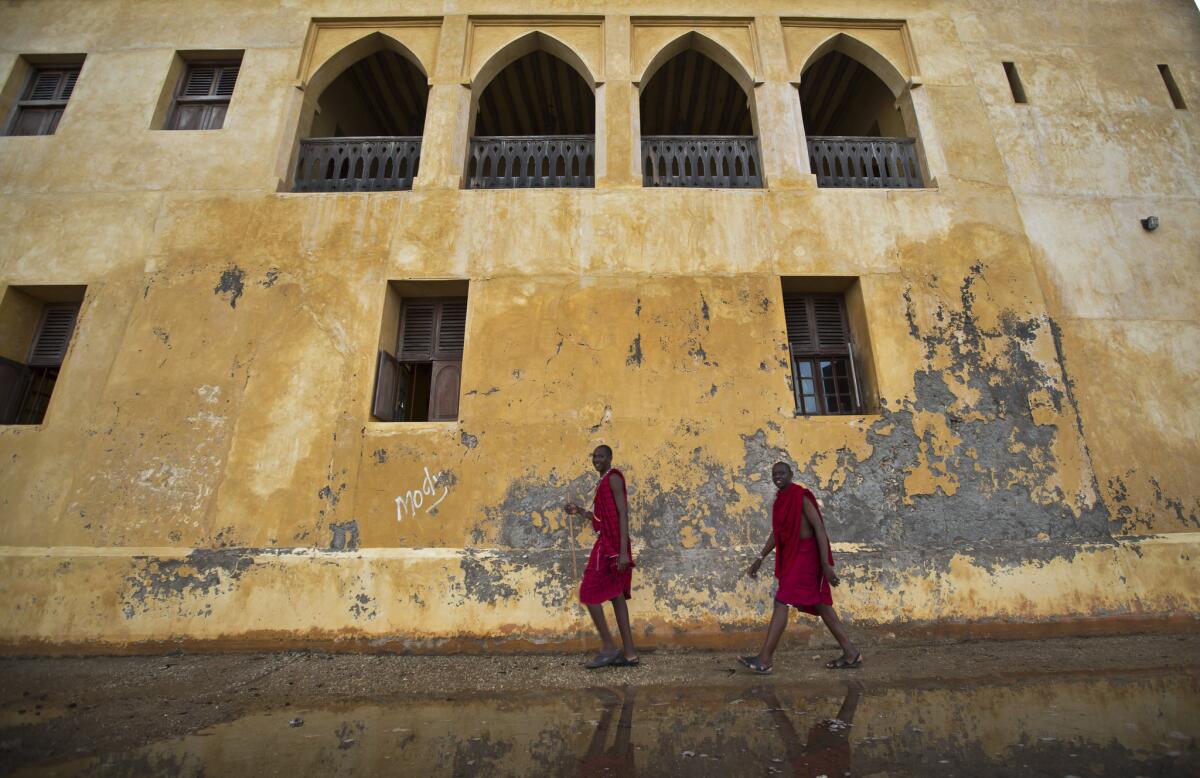Ebola and Africa: Geographic misunderstandings scaring tourists away

- Share via
When the first U.S. case of Ebola was diagnosed in Dallas, did you cancel your fall foliage tour of New England? When American healthcare workers infected with the fatal disease were flown to Atlanta for treatment, did anyone you know cancel a family trip to Walt Disney World in Orlando, Fla.?
Of course not. But that’s what’s happening in Africa.
“The tragedy of Ebola goes far beyond the heartbreaking suffering of the people in hardest-hit West Africa,” Ashish Sanghrajka, president of Florida-based Big Five Tours & Expeditions, writes in an email.
“Behind the scenes, another lesser known level of devastation is taking place. Tourism to Africa’s great wildlife destinations including Tanzania, Kenya, South Africa and Botswana is in free-fall, as travelers scheduled to go on safari holidays cancel in droves.”
Blake Fleetwood, president of Cook Travel in New York, told the Associated Press that about half the people booking African travel through his agency canceled. He has canceled at least 14 groups booked for safaris in Kenya and South Africa.
The Ebola outbreak has killed thousands in Sierra Leone, Liberia and Guinea.
For those who need a refresher course in geography (the map above at left can help): Liberia is more than 4,600 miles from Kenya, and Sierra Leone is more than 6,700 miles from Durban, South Africa.
These nations along with others in Africa adopted travel restrictions over the Ebola outbreak as early as August.
Still, travelers are jittery and aren’t looking at maps. A recent poll by travel show producer Unicomm shows that 40% of 6,200 active travelers say they will “likely limit travel outside the USA in the next 30 days” and more than 12% said they would not travel internationally because of Ebola concerns.
Sanghrajka, who was born in Kenya, tells the story of a man who went from wildlife poacher to pastry chef at a top Serengeti lodge. “It is ... what tourism to Africa delivers — a win-win model to escape poverty based on saving nature. This is at the heart of community-based conservation today,” he writes.
All of that is being undone by what Sanghrajka says is “about basic geography, not Ebola.” And he notes that travelers who cancel add to “the suffering of the African people at a time when they need our help the most.”
More to Read
Sign up for The Wild
We’ll help you find the best places to hike, bike and run, as well as the perfect silent spots for meditation and yoga.
You may occasionally receive promotional content from the Los Angeles Times.







